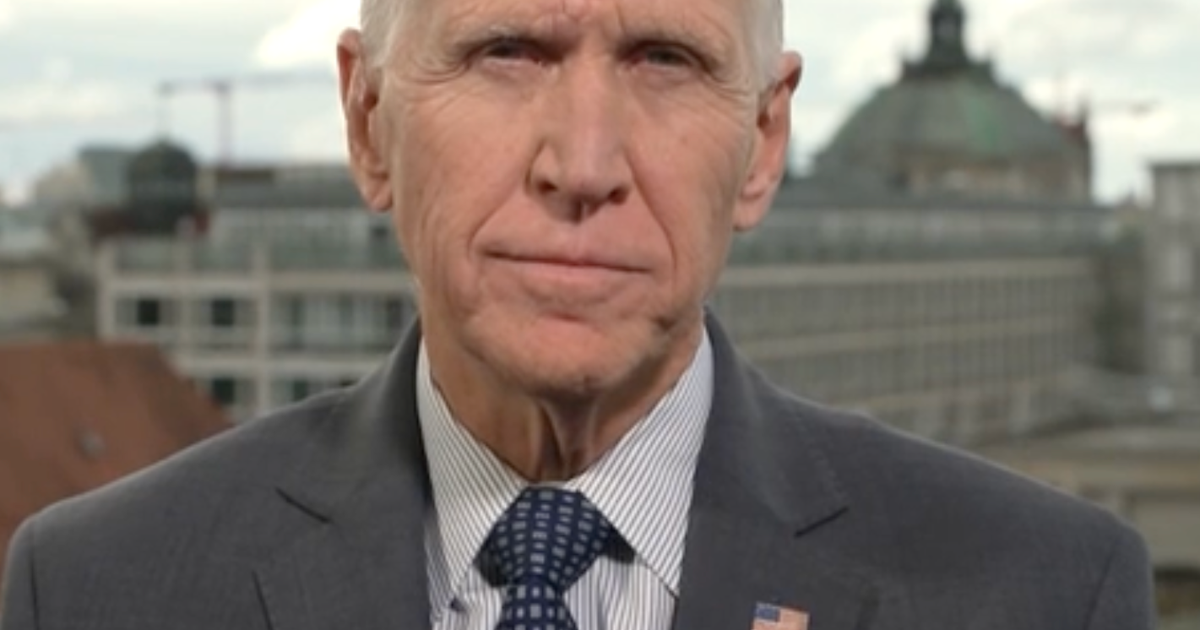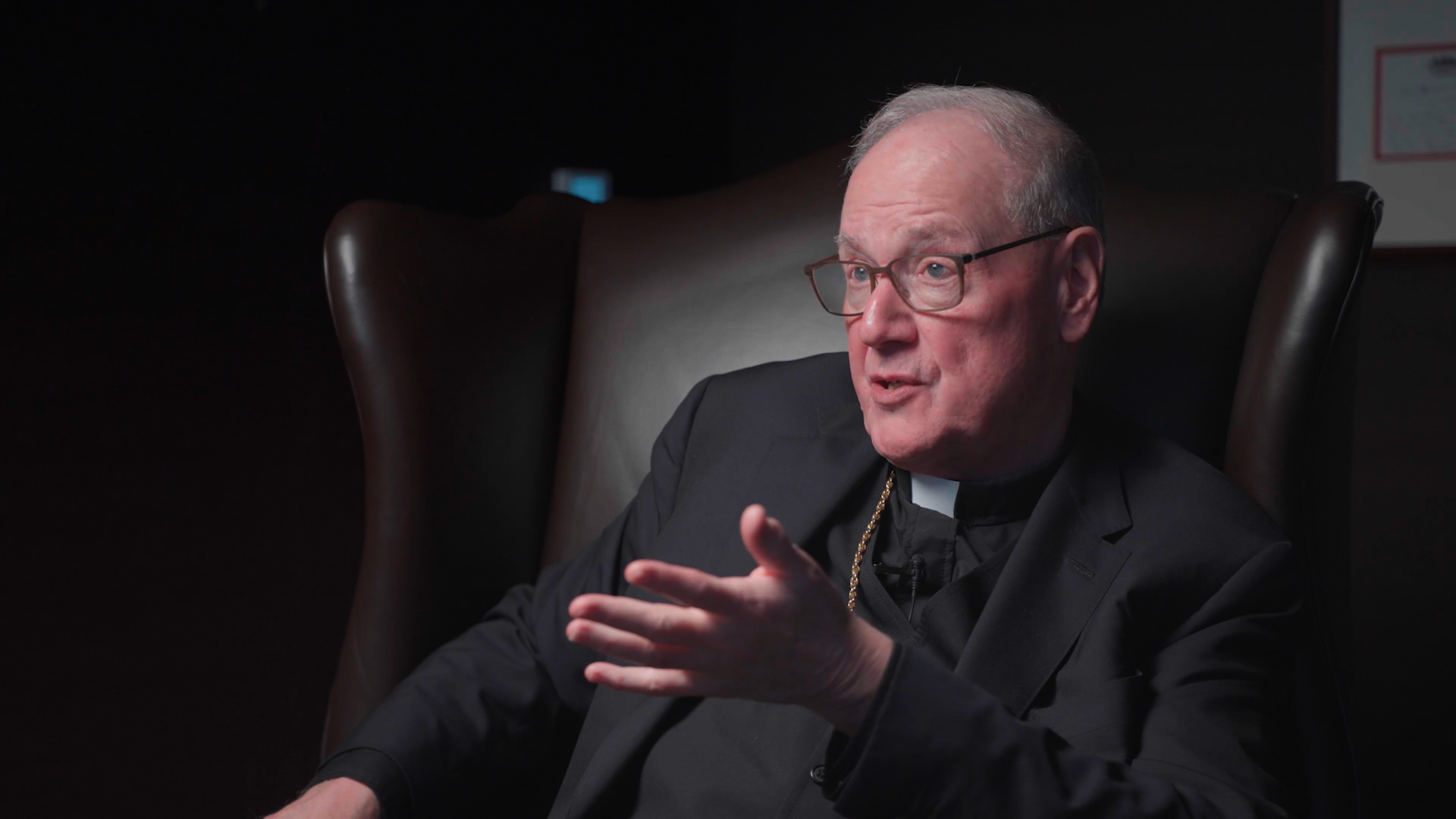Transcript: Sen. Tim Scott on "Face the Nation," August 4, 2019
The following is a transcript of the interview with Republican Sen. Tim Scott of South Carolina that aired Sunday, August 4, 2019, on "Face the Nation."
MAJOR GARRETT: Welcome back. We turn now to South Carolina Republican Senator Tim Scott, who joins us this morning from Mt. Pleasant, just outside of Charleston. Senator, good morning. And I want you to help our audience--
SENATOR TIM SCOTT: Good morning, Garrett.
MAJOR GARRETT: --because you've worked through this. You've been through this as an elected leader and as someone deeply touched in a community that has suffered a mass shooting. Describe for my audience- for our audience- what El Paso and Dayton are about to go through.
SEN. SCOTT: What a challenging time. Our prayers and our thoughts are certainly with both communities. In South Carolina, here in Charleston, my hometown, at the Mother Emanuel Church, a white racist walked into the doors, sat through a Bible study for more than an hour and then executed nine members. My friend Clementa Pinckney was the pastor, my uncle had attended that church for over 50 years, so I am intimately aware of the challenges and the sense of disillusionment that comes in the aftermath. The- the good news for our community was that our community came together through prayer. A lot of folks say that prayers don't matter. Well I will disagree with them vehemently. Because of prayer, the five- the nine family members forgave the shooter and brought unity into our state in a way that we have not seen in the history of the state, frankly. The Civil War started in Charleston and to have a white racist walk into a door of a black church to start, according to his objective, "a race riot," to have the actual opposite occur because of the power of faith in that church and in our community was fantastic and phenomenal. Walking out of that situation, what we started doing was meeting and talking and finding out where the differences were so that we could challenge ourselves to overcome those differences and we did something that I thought was incredibly important. We said to each other that, "When you hear someone who looks like you say something that is out of line or inconsistent or insensitive, make it your responsibility to respond to that individual within your own community." That really did resonate here at home and it was very powerful and very helpful because when we're looking for ways to address the challenges that our nation is seeing all over the place, one of the things that we do- we must take individual responsibility and speak up when we hear something. Silence in and of itself is a part of the challenge. So we must speak up when we see things that are out of place, when we hear things that are inconsistent with that. That- that's in the best interests of our nation and our communities.
MAJOR GARRETT: Senator Scott, on that topic, you mentioned sent- silence, and, "That's not acceptable." I want to read to you a quote from a book that just was published by Tim Alberta called "American Carnage." It relates a conversation you had with President Trump. I want to quote from it directly. "'I know what fear looks like. I think fear typically comes with anger and hostility. You're afraid that you're losing something, that you won't have something that you used to have. I think people who march with torches who want to resurrect a thankfully dead part of who we were, these are people who are afraid.' Trump took all this in rarely interrupting. 'What can I do to be helpful?' He finally asked." What would you say to President Trump this morning, about what he has said, the atmosphere he's created, and in his words what he can do to be more helpful?
SEN. SCOTT: The first thing I'd say is that we need to take a step back from the- from politicizing every event. This is a issue of human hate something that resides in the heart and that is actually, unfortunately because of social technology and the social media we're seeing it connect it to other folks who have hate in their heart as well. What I'd say to everyone from the president to my house is that we should take responsibility for how we respond to the situations. I'm thankful that the president's response to this situation has been clear and decisive. I would hope that we would always have that clarity and decisive response in the face of hate and rage and racism. But it goes beyond that we have to build a better society a society where we all see that we are in the same boat. Poking holes or shooting holes in that boat only leads to casualties. All of us will be the casualty. Everyone looks in this world to America as a city on the Hill the bright light within the stars. We have to act consistent with our values. If we are to maintain the position not as a superpower economically, but as a moral compass for this world to follow. I think we can do that. I know that we have done it. And I believe that we will do it again.
MAJOR GARRETT: I don't know if you had a chance to hear it, but Sherrod Brown earlier on this program said he hopes the Senate will cancel that August recess, come back and address gun related issues. Your colleague in South Carolina Lindsey Graham tweeted this morning. He's now in favor of so-called red flag laws. Do you have any anticipation Senator Scott, that that will occur? The Senate will be called back this August and any legislative efforts will be undertaken whether it's assault weapons ban, background checks or red flag laws or should they be?
SEN. SCOTT: Well Garrett, it's a great question. I don't have a clear answer for that. Something that I would be happy to do I'd happy to- happily come back to Washington to have a conversation about gun violence--
MAJOR GARRETT: Right now?
SEN. SCOTT: --and I hope we'd do it in a very thorough way. I- I'd do it tonight, I'd leave tonight, I'll go tomorrow. It doesn't matter to me, this is such an important issue and an issue that we sometimes only get part of the picture because of the mass shootings. I heard one of your guests earlier talk about the fact that we had nearly forty thousand gun related deaths in this country. That is a staggering number. And when you delve into the numbers what you find is that sixty-five to sixty-seven percent of those murders were self-inflicted- they were suicides. When you look at the two-hundred and fifty plus mass shootings in this country this year, about seventeen to twenty of them led to the loss of four lives or more. About half of those were suicides and or domestic situations. We are in the midst of a mental health crisis that we have not truly identified. I am happy to talk about background checks. I've supported letters to the administration that eliminated bump stocks. I am willing to have that conversation. But let's make sure that we put a fine point on the actual place the numbers lead us and wherever that goes we should be willing to take a serious look at it.
MAJOR GARRETT: I just want to make sure I understand you clearly, Senator Scott. Your message this morning to the Senate Majority Leader, Mitch McConnell, is "come back. Bring us back and let's have a conversation on these various issues right now."
SEN. SCOTT: Garrett it is- it is painful to watch the challenges that I've lived through. And to suggest that for some reason we're not willing to go back and confront this major issue in our nation, I reject that. I reject the notion that something is more important than saving lives if we can do so. I'm not going to suggest that we will find ourselves on the same page, having the same answers from left or right, but I do think that it is an American crisis that we are part of. And as leaders of this country, we have an opportunity to go back and- and deal with the issue and I hope that we find the resolve to take apart the issue and not just deal with one silo. I am willing to look at the entire ugly picture and look for solutions that our nation desperately lea- yearns for.
MAJOR GARRETT: Republican Senator Tim Scott of South Carolina. Thank you so very much for your time, and we'll be right back with our panel.



